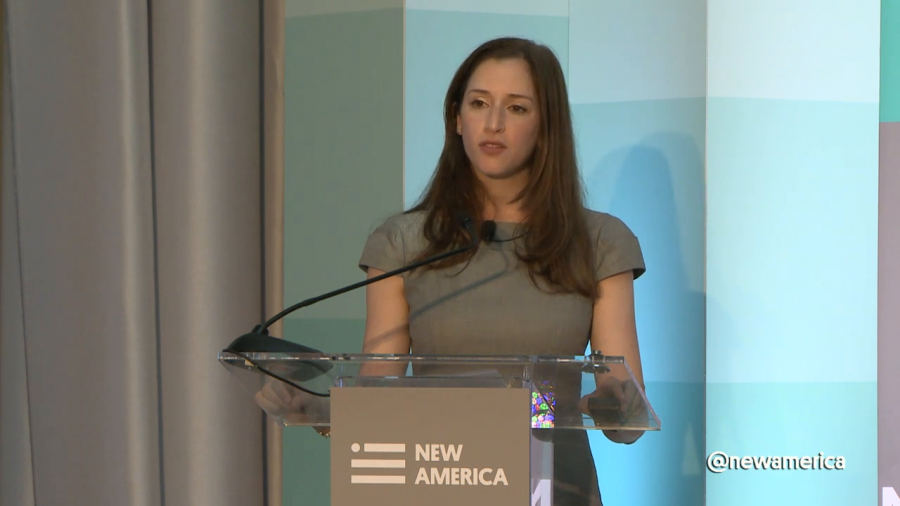Thank you very much for having me. What I want to talk about in my brief time today is to start with something that is no secret to anyone in this room, which is that access to the Internet is increasingly being recognized as a necessity rather than as a luxury. And as more opportunities move online, not just for kids but also for adults, it should be recognized as one of the things that gives people access to the world.
Part of the reason we’re concerned about this is because there’s also growing recognition that social inequality and digital inequality are linked. The people who experience broader and more pervasive forms of social inequality related to housing, education, language proficiency, occupational opportunity and so forth, are also the ones who are most likely to be under-connected to the Internet. That creates fears that digital inequality might exacerbate these broader forms of social inequality, but also provides hope and possible opportunities for mitigating these broader social inequalities with meaningful access to technology.
In the education sphere particularly, the time to act is now. A new era began in September of 2014. Kids of color became the majority in American K–12 schools. And approximately 60% of those kids are growing up in low-income families. So there’s a few aspects of the challenges to digital equity that I want to highlight today as we’re thinking about the next social contract for US education. And they all have to do with what commitments we’re willing to make about expanding what it means to have access.
The first thing, and it comes out of our study so clearly, is that thinking about access as having the Internet or having its advice is simply not enough. It’s about the quality of your connection. It’s about how consistent it is. It’s about what you can do with it. So it’s not just about hardware. It’s not just about the Internet. It’s about whether you can pay for it. It’s about whether you have the support locally in your community to help you develop the skills so that you can meaningfully access the things you want to do in your day. And those things matter tremendously.
One thing I want to raise for our conversation is that there’s a difference between mobile-only access and access on a laptop or desktop. I’d like everybody in this room to consider the following, which is something that came out of our interviews over and over again. Imagine being in seventh grade and having to do research for a school project on the Hippocratic Oath, on a smartphone. You do all your research on mom’s phone. Now you have to type it up on the smartphone, and submit it. That is not equitable access, compared with somebody who has access on a desktop or laptop. So, for our lower-income families, for families of color who are disproportionately connected through mobile devices, that is not mission accomplished. That’s just a first step, and we need to be clear about that.
The second thing that I want to add just very very quickly is to think about filtering of content. There was a recent article in the Atlantic that highlighted how Internet filtering is disproportionately affecting our lowest-income students. Because if you only access the Internet at school or through school-provided devices, you’re subject to the filters that are consistent on school-related technology, and the same is true of libraries.
Why is filtering a big deal for the next social contract for US education? Because frankly, unless we commit to making the whole Internet available to everyone, our efforts towards digital equity are fruitless. We either make the Internet as broadly accessible to all learners as possible, or we will inevitably create a two-tiered system where the poor get a narrower set of resources and opportunities than the wealthy. No matter how good the intentions, a more limited Internet is less Internet, and that includes efforts like Internet.org.
We can look to the EU for guidance on this. Researchers there have focused on children and media, and helped to shape a policy agenda for protecting children from harm, which is what filters are intended to do. But harm is a narrower conception of online threat than risk. Risk and opportunity are paired, and you can think of that every time you provide your email address to get discounts at a favorite store. You’re sacrificing a little bit of privacy for an opportunity. You’re managing risk and opportunity. We should be teaching all children—rich and poor—how to manage risk, not using filtering and other heavy-handed means to obviate all risk. Because doing that also restricts the many opportunities for the kids and parents who are affected by it. Thank you very much.
Further Reference
Vikki Katz’ home page and faculty profile at Rutgers.
The Next Social Contract event home page.
